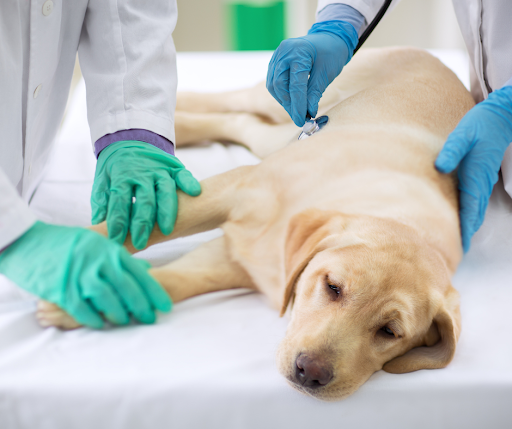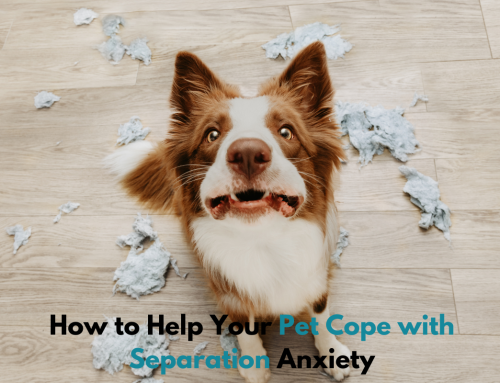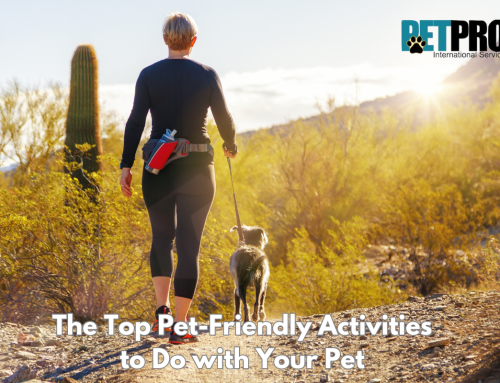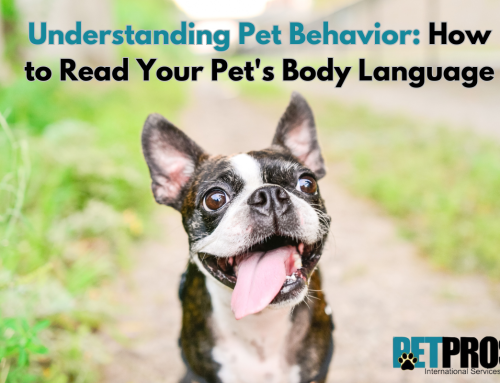If you suspect your pet has parvovirus, you must take them to a veterinarian immediately. Because parvovirus is a serious illness that spreads easily and can result in death quickly, prompt medical attention is essential. Your veterinarian will be able to diagnose whatever ails your pet and will then be able to provide the care and treatment that will be most beneficial to your pet’s speedy recovery. Here are five things you need to do;
- Get in touch with your vet: Call your veterinarian and describe the signs that your pet is showing. You might be asked to bring in a stool sample for analysis. It’s critical to get in touch with your vet as soon as possible and describe your pet’s signs. To confirm the diagnosis, they might ask you to bring in a stool sample for analysis. Your veterinarian can decide the best course of action and administer the required treatment to aid your pet’s recovery if you call them and notify them of your pet’s symptoms.
- Isolation:Keep your pet isolated from other canines to stop the virus from spreading. The first step in preventing the spread of the parvovirus is isolation. It’s crucial to separate your dog from other dogs as soon as you think your pet has parvovirus to stop the illness from spreading. It can achieve by keeping them alone, away from other animals and people, in a separate room or an outdoor space. It’s crucial to heed your doctor’s advice and take preventative measures to stop the infection from spreading, especially if you have additional pets at home.
- Hospitalization:Hospitalization is frequently required due to the seriousness and contagiousness of parvovirus in pets. Your pet might need to be admitted to the vet’s office for treatment, which might involve IV fluids to avoid dehydration, antibiotics to deal with any secondary infections, and other drugs to help them cope with their symptoms. The severity of your pet’s sickness and how well they respond to treatment will determine how long they need to stay in the hospital. Your veterinarian can choose the best course of action and administer the required care to aid in your pet’s recovery.
- Follow the treatment plan:When assisting your pet in recovering from parvovirus, one of the most crucial steps is to follow the treatment plan that your veterinarian prescribed. Maintaining close communication with your veterinarian is essential to ensure that your pet is provided with the right therapy and follow-up care. Please keep all of your appointments and do what they tell you. As part of this process, your veterinarian will likely have you give your pet medication, evaluate its progress, and take measures to reduce re-infection risk. You can assist your pet in recovering and returning to good health if you adhere to the treatment plan that your veterinarian recommended.
- Prevention:Prevention is the most effective method for warding off diseases like parvovirus and others that could affect your pet. Keeping your pet’s vaccines up to date is one of the most effective measures you can take to protect them from contracting parvovirus. Because parvovirus is a highly contagious disease that can be passed from dog to dog, you must take the necessary precautions to keep your pet safe. In addition to receiving vaccinations, other measures can be taken to prevent the spread of the virus. These include avoiding contact with infected dogs, washing your hands and clothing after being around infected dogs, and ensuring that your pet does not enter areas frequented by dogs infected with the virus. You may help protect your pet from infections such as parvovirus and others by practicing good hygiene and implementing preventative steps.
Conclusion:
If you think that your pet is infected with parvovirus, you must move quickly to get them evaluated and treated by a veterinarian. That includes getting in touch with your Pet’s Veterinarian and ensuring that your pet’s vaccinations are up to date. You were isolating your pet to prevent the spread of the virus and hospitalizing your pet for treatment, following the treatment plan provided by your veterinarian, and keeping your pet isolated to avoid spreading the virus. It is necessary to seek veterinary care as soon as possible since early detection and prompt treatment are crucial in conquering parvovirus. Therefore, it is essential to seek care as quickly as feasible. You can assist your pet in recovering and returning to a state of excellent health if you follow these procedures.





